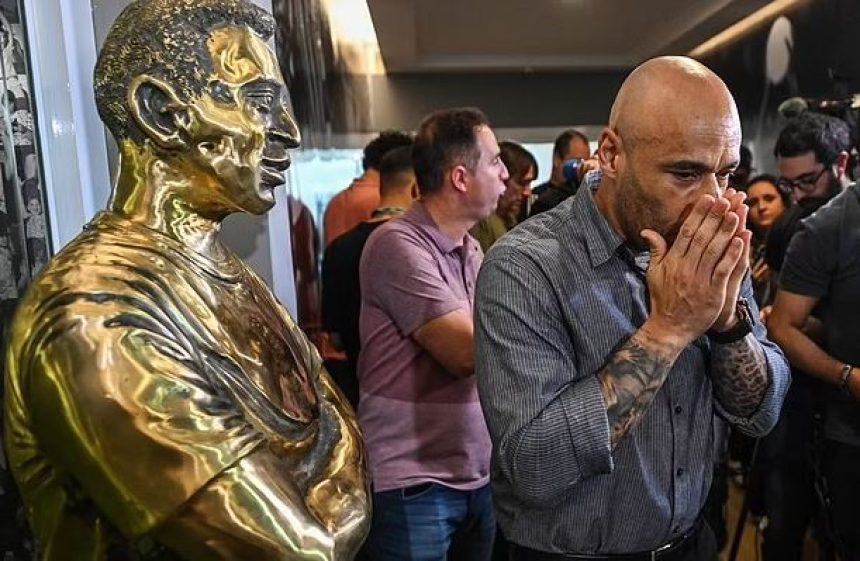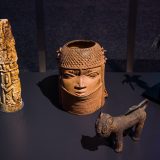In Santos, a city outside of Sao Paulo, admirers can now pay their respects to Edson Arantes do Nascimento on the second story of a vertical cemetery.
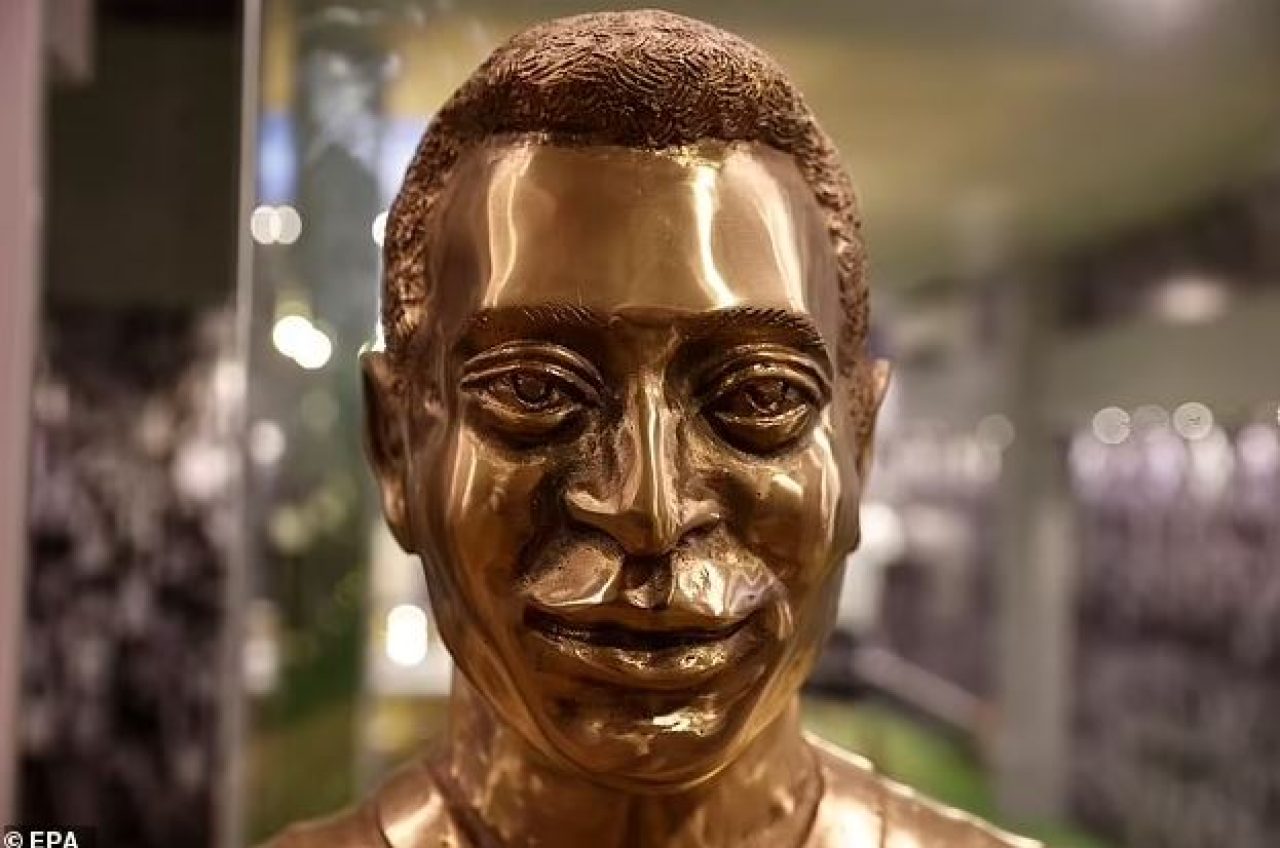
The chamber is decorated to resemble a stadium, with an artificial grass surface, pictures of spectators in the stands on the walls, and an echoing recording of applauding fans. The centerpiece of the 2,100 sq. ft. chamber is Pele’s casket.
The footballer, who passed away on December 30, 2022, is buried in a solid gold casket to match the golden World Cup trophy he won for Brazil three times in a 12-year span.
On January 3, five days after passing away from colon cancer at age 82, Pele was buried here.
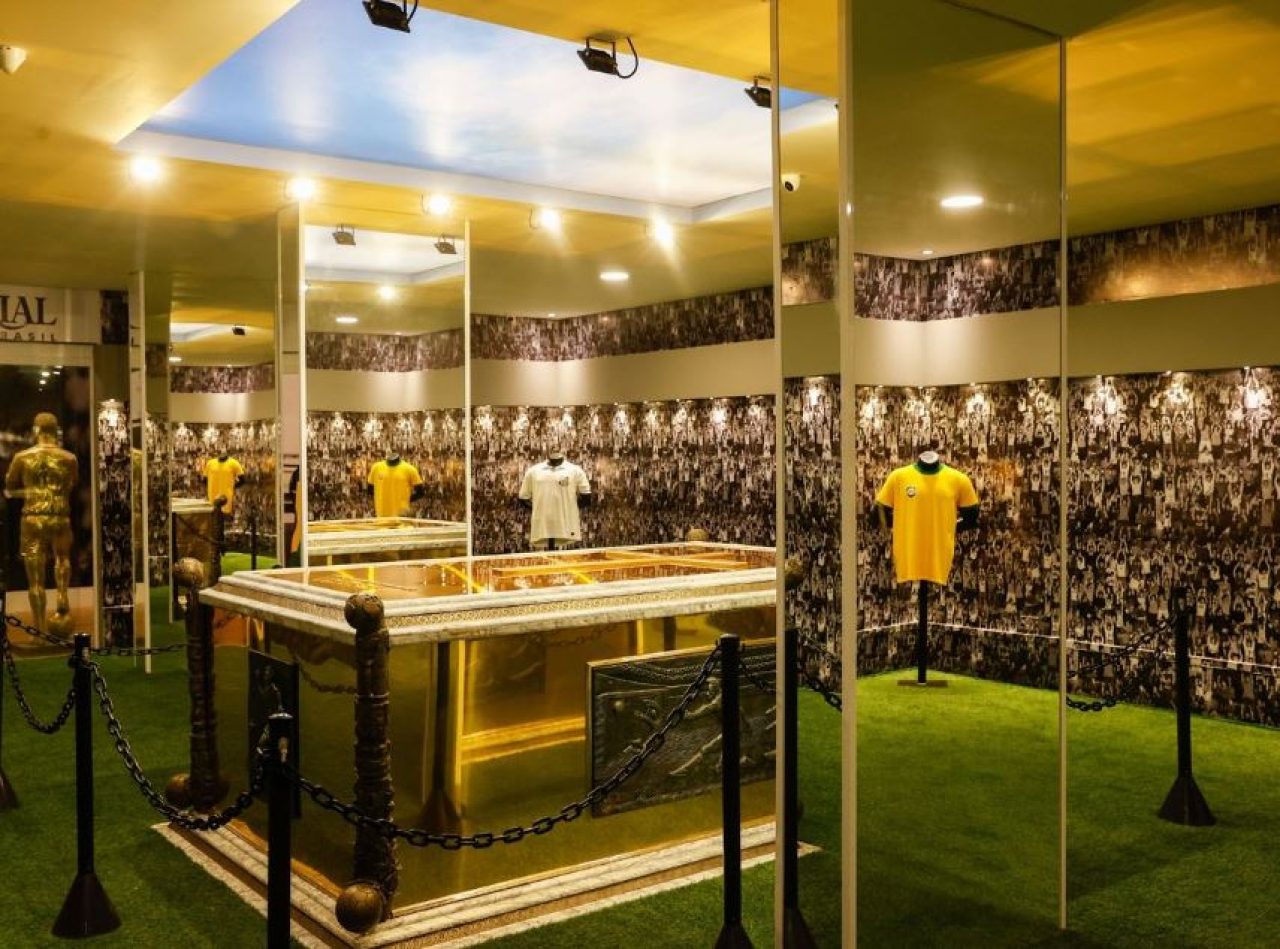
‘This was made with a lot of love by people who knew him, who lived with him. It has the essence of what he was,’ an emotional Edson Cholbi do Nascimento, one of Pele’s sons, said after a small ceremony with family and friends.
Owner of the cemetery and planner of the mauseoleum, Pepe Alstut, passed away in 2018.
The Vila Belmiro Stadium, where Pele spent 18 years as a player for the Santos team, was the site Mr. Alstut anticipated the mauseoleum would be on the ninth story.
Instead, his family chose to bury him higher up so that more people could visit.
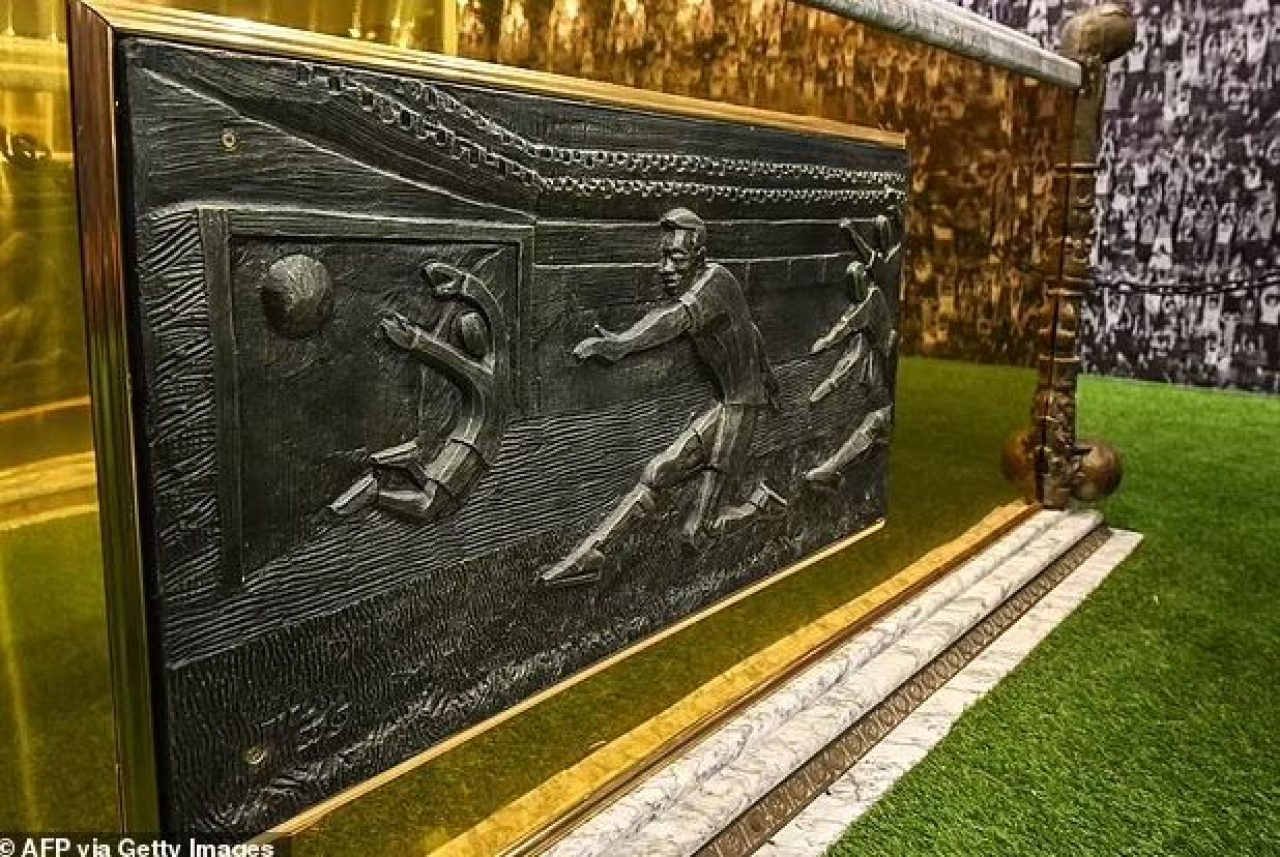
The coffin is embellished with engravings meant to resemble significant events in Pele’s illustrious career, such as his 100th goal and his signature raised-fist celebration. The mausoleum is jam-packed with memorabilia, including the Brazilian national and Santos club jerseys worn by the man himself.
‘I am shaking. The energy of this place is surreal,’ said Erica Nascimento, a tearful 42-year-old economist.
Former footballer Roberto Milano, 56, was also moved.
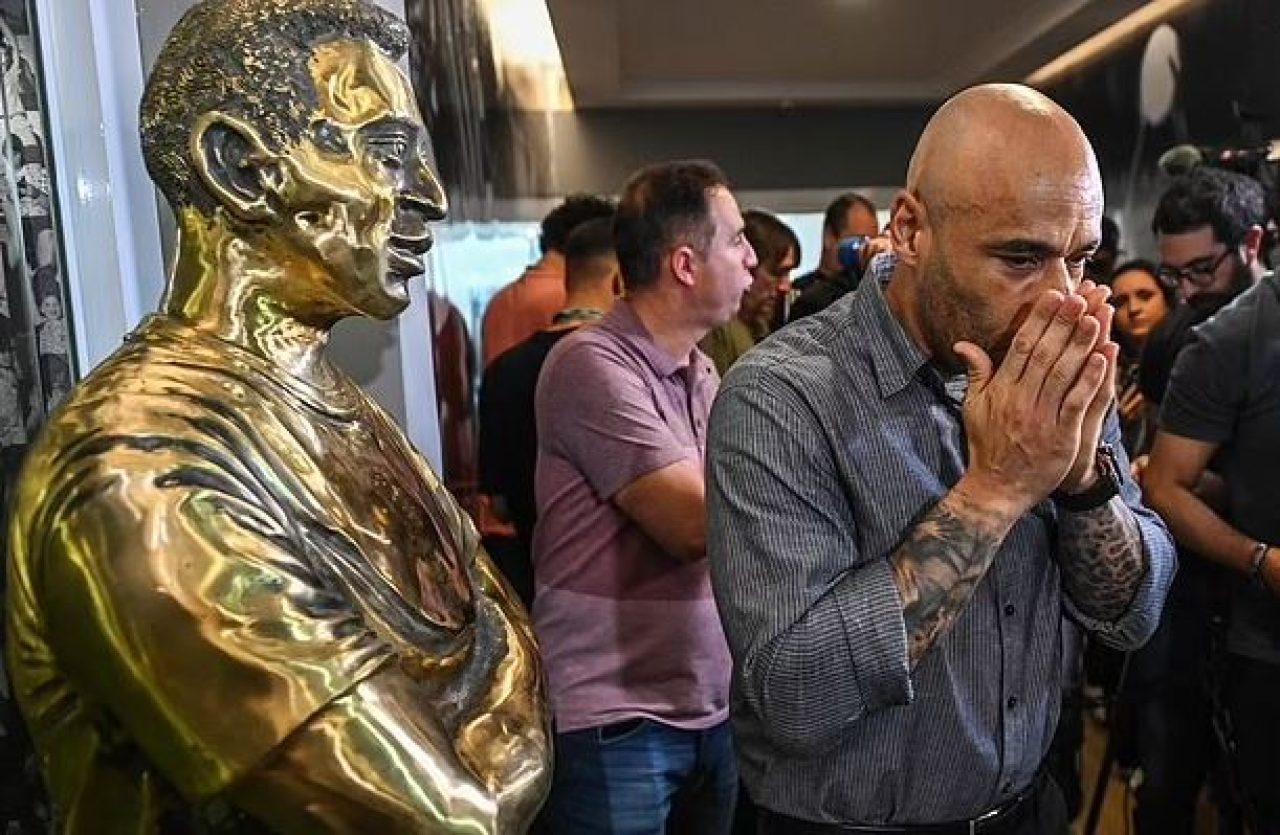
‘He is part of my life,’ Mr Milano said. ‘As we grow old we need to follow the best role models. Maybe he was the biggest of them all of these role models.’
Only 60 attendees per day are permitted, and they must reserve a slot on the Memorial cemetery website.
Pele, who coached Brazil to World Cup victories in 1958, 1962, and 1970, is still the only player to have done so.
Pele was named “athlete of the century” by the International Olympic Committee in 1999.
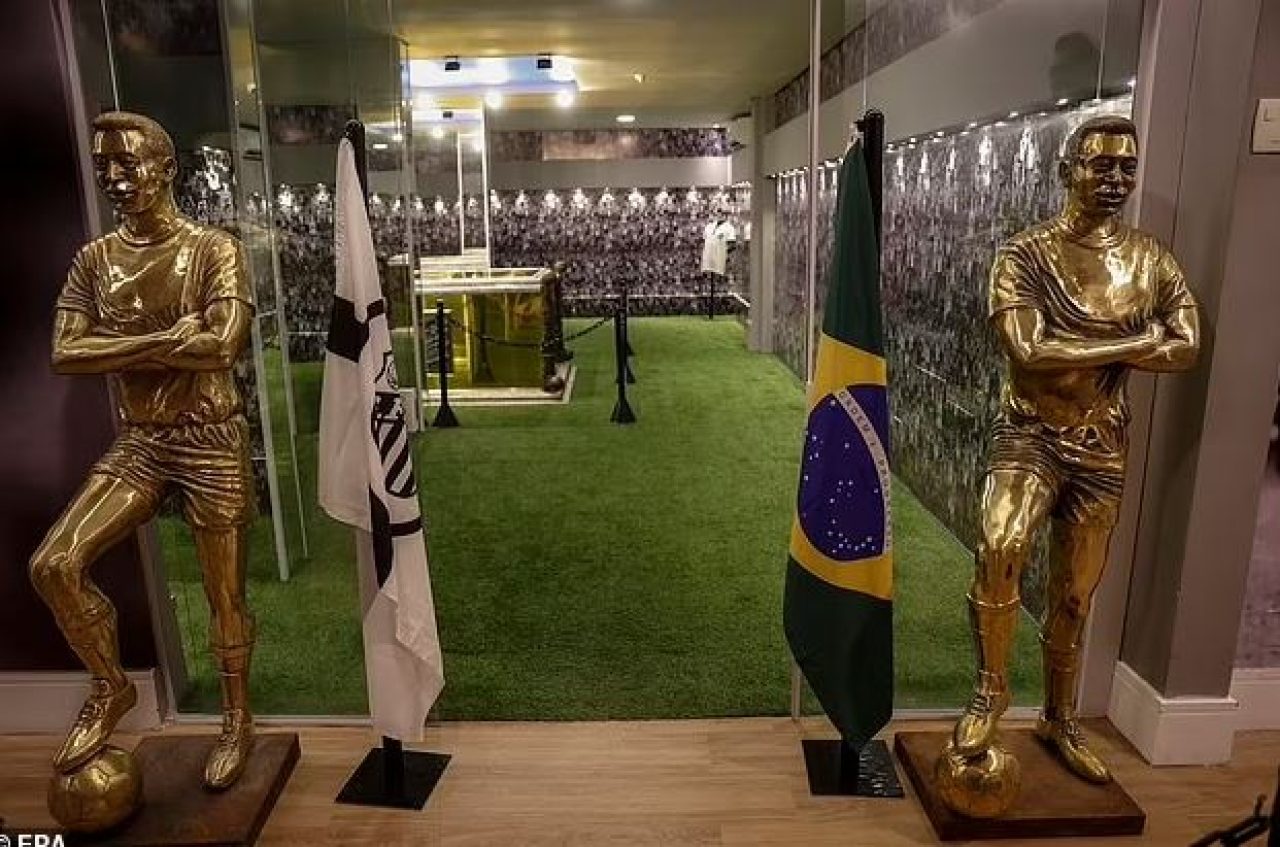
Pele helped promote physical education all around the world after retiring in 1977 by working as the UNESCO’s “champion for sport” organisation. As a goodwill ambassador, he additionally helped UNICEF, the UN Children’s Fund.
A Brazilian dictionary has added the adjective “Pele” to its list of words to use when characterizing someone who is “exceptional, incomparable, or unique.”
